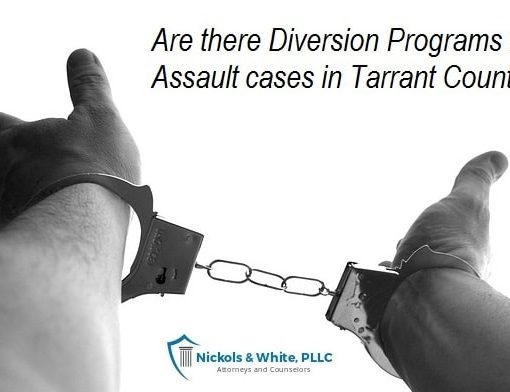
Whenever someone is arrested or convicted of a crime, there can be hefty consequences. However, if a noncitizen is arrested or convicted of a crime, the aftermath could result in deportation. Due to the consequences of an arrest or conviction for a noncitizen, it is important to understand the effects of any conviction, plea deal, or even arrest when it comes to one’s immigration status. In these situations it is critical to have an experienced criminal law attorney who knows how the immigration process works such as the Fort Worth criminal defense attorneys at Nickols & White.
The effects of an arrest vs. conviction
A common misconception when a noncitizen has been charged with a crime is that only convictions can affect immigration proceedings. However, this is not true. Arrests can have implications on immigration as well. For example, a major place where arrests can affect the immigration process are applications for visas, residency and citizenship. On these applications, noncitizens must show that they have good moral character. An arrest, conviction of any kind or probation could lead to a finding that the applicant lacks good moral character and the application could be denied.
However, an arrest and nothing more will usually not affect a noncitizen’s status in the U.S. or result in deportation unless there are violent circumstances, or the noncitizen is undocumented where deportation is always a possibility. But, an arrest that leads to a conviction can have consequences that could lead to being denied a visa or even being deported.
Convictions in the immigration world has a broad definition. So, it is very important that you are informed of the potential consequences before taking any plea deal or going to trial. The Immigration and Nationality Act (INA) defines “convictions” as: "any formal judgment of guilt entered by a court or, if adjudication has been withheld where a judge or jury has found the alien guilty or the alien has entered a plea of guilty or nolo contendere or has admitted sufficient facts to warrant a finding of guilt and the judge has ordered some form of punishment, penalty, or restraint on the alien’s liberty to be imposed".
This means any confession of guilt before a judge or jury where there is some type of punishment involved is a conviction. “Penalty or punishment” under the INA definition can mean a sentence of imprisonment or jail time, a fine, community service, an order to pay costs and surcharges, or even probation. So before you plea “no contest” or “guilty” before a judge for that tempting plea bargain, it is very important that you consult with experienced criminal law attorneys who know how your case could affect your immigration status.
The following have been held to be convictions for immigration purposes:
1) Probation Sentences. In plea bargains, probation sentences are often offered by the State in exchange for a guilty plea. These can be very enticing deals as jail time in avoided as long as probation is successfully completed. But, for a noncitizen taking a deal like this will cause him to have a conviction which could lead to deportation.
2) Deferred Sentences. Another common offer in plea bargains are deferred sentences or suspended sentences. A deferred sentence is when someone pleads guilty but the sentence or punishment is delayed while that person completes conditions or services. If that person complete the conditions successfully, then the case is dropped. However, a noncitizen will still have a conviction for immigration purposes. So while a deferred sentence can seem appealing because the case will ultimately be dropped, the result of the matter can still lead to immigration consequences.
3) Expunged Convictions. An expungement is a great result most of the time because it erases or seals the arrest or crime. However, in the immigration context a conviction or arrest will always be a conviction or arrest regardless of whether or not it was expunged.
4) Conditional Discharge. A pretrial intervention, such as a conditional discharge (the case is dismissed after certain conditions are met), can be a conviction if it’s accompanied by a guilty plea or a plea of no-contest. Remember: in order for there to be a conviction there must be an admission or finding of guilt before a judge or jury. So, if there is a conditional dismissal that does not involve a finding of guilt, there is not a conviction under the INA.
Will I be automatically deported?
Some offenses always invoke deportation. Offenses that include aggravated felonies, crimes of moral turpitude, child abuse, violation of protective orders, stalking, weapons-related crimes and drug-related crimes will always invoke deportation.
Other crimes may not automatically invoke deportation, but that does not mean that deportation is not a possible result.
What should I do?
When facing criminal charges, it is very important to have experienced criminal law attorneys at your side. But, when the consequences could include deportation it is essential to have an attorney who understands the possible consequences regarding both the criminal and immigration matter. Call us at (817) 617-7500 today for a no-cost consultation!




